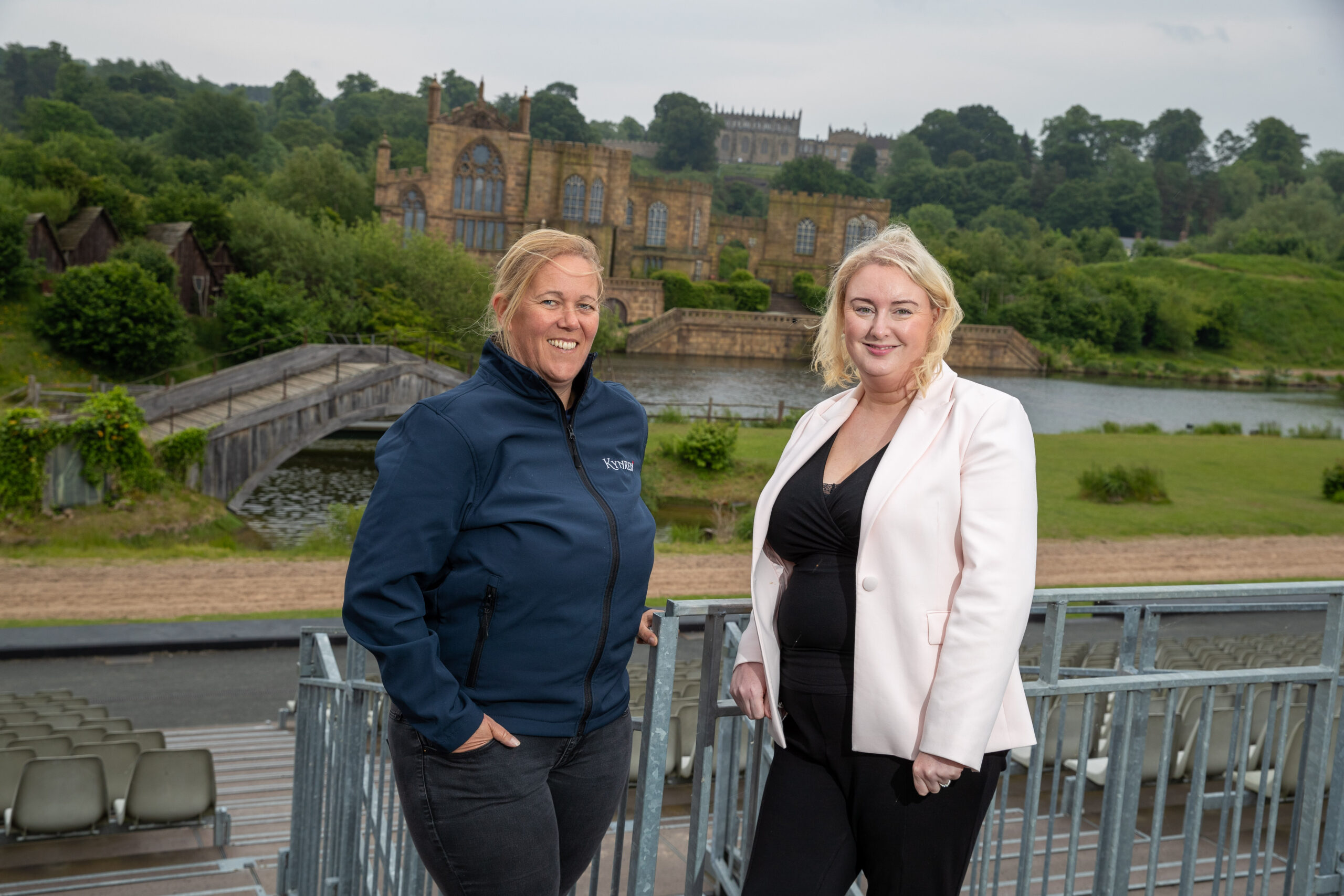
With tourism already on the rise, the 2026 opening of a new historical theme park, The Storied Lands, is expected to further boost the local economy.

With tourism already on the rise, the 2026 opening of a new historical theme park, The Storied Lands, is expected to further boost the local economy.

Latest tourism figures show a major boost for Durham’s visitor economy as the county sees overall visitor expenditure rise to a record £1.38billion, with the number of day visitors now 7.6% higher than pre pandemic figures, and overnight visitors also rising by 1.8%.
Visit County Durham, the county’s Destination Management Organisation and Durham County Council’s tourism service, has welcomed the results which show visitor expenditure rose by 11.7% in 2024, with the value of the county’s visitor economy reaching record levels for the third year in a row.
Overall, 21.56 million people visited the county last year, an increase of 7%. The number of people employed in tourism in Durham has also risen and is up by 4.7% according to the latest STEAM* results.
The major study which tracked visitors to the region throughout 2024 has shown an increase in the number of people staying overnight and has highlighted the county as the only area in the North East to see a rise in overall visitor numbers.
Significant levels of investment in the county’s visitor offer have helped to drive this continued growth, whilst marketing campaigns and strategic partnerships have raised the profile and appeal of the county on a global scale. New and enhanced visitor attractions have played a major part in this success with the New Hall expansion at Locomotion, the transformation of Raby Castle’s Rising development, new experiences at Beamish Museum and developments at The Auckland Project.
With even more investment and developments in the pipeline, including major investment in our hotels, Redhills Durham Miners Hall and plans for a historical theme park at Kynren, the sector is looking to the future with optimism.
From high-profile events and cultural programmes at major attractions to vibrant grassroots festivals and community celebrations, Durham offers year-round reasons to visit, with experiences that reflect the county’s rich heritage, creativity, and warm welcome.
Duncan Peake, Chair of Visit County Durham and CEO of Raby Estates said: “These results illustrate the ambition and resilience of the county’s visitor economy. We have not only survived the challenges of the last few years but have emerged much stronger.
We continue to see new developments take shape across the county and wider region, as well as continuing to reap the rewards of recent investment. However, we must not slow down, we must keep moving forward at pace to ensure the county’s visitor economy continues to prosper, which in turn creates jobs and opportunities for residents.”
Cllr Lyndsey Fox, Durham County Council’s Cabinet member for economy and partnerships, said: “We are thrilled with the latest economic assessment STEAM results, which are testament to the incredible partnerships across the county that are committed to working together to grow our visitor economy. Durham continues to grow as an exciting and attractive visitor destination and has greatly benefited from new developments over recent years, and with more to come it puts us in a strong position for 2025 and beyond.”
Jane Ruffer, co-founder of The Auckland Project, said: “These results are a powerful endorsement of the vision and long-term investment that have gone into County Durham’s visitor economy. At The Auckland Project, we’ve experienced first-hand how cultural regeneration and community-led programming can reinvigorate a place and attract both day and overnight visitors. The continued growth in visitor numbers and expenditure is not only good news for our sector but for the communities and local businesses that benefit from this shared success. It’s a clear signal that County Durham’s heritage, creativity and hospitality are resonating with people like never before.”

The Guardian’s happiest places to live in Britain revealed.
Durham City has been ranked as one of the happiest places to live in Britain. Journalists at The Guardian used scientific data to work out the happiest places to live taking into account a number of social factors including easy access to countryside and parks, the ability to to see a GP and even proximity to shops. Durham’s medieval streets and confined geography were listed as some of its highlights.
Find out more on The Guardian’s website.

A new university business school facility has been opened by a former Unilever CEO.
Paul Polman, a global business leader and environmentalist, officially opened Durham University Business School’s new Waterside building.
At the opening, Mr Polman addressed the audience of business leaders, academics, and policy leaders, highlighting the ‘extraordinary disruption’ the world is facing and the need for a shift in leadership mindset.
He said: “I would argue we are short of the right leaders we need to succeed – and that’s where you come in.
“It’s in the rough seas where you learn leadership.
“Here at Durham, you already punch above your weight.
“With the opening of this wonderful Waterside building, you are setting yourselves up very well for success.”
Mr Polman, who was previously the chief executive of Unilever, called for business leaders to adopt a ‘net positive’ mindset, asking not ‘how can I do less harm?’ but ‘how can I do more good?’
The Waterside building, which has achieved a Gold SKA rating for sustainability, is located in the heart of Durham city, close to the railway station and city centre.
The new facility complements the existing Mill Hill Lane facility and includes lecture theatres, a financial trading lab with Bloomberg terminals, executive facilities, offices, study spaces, and a Riverfront Bistro.
Durham University Business School, established in 1965, is among the top one per cent of business schools worldwide with triple accreditation from AACSB, AMBA, and Equis.
It delivers research and education in finance, leadership, and sustainability, and has nearly 400 business partnerships.
The opening event was attended by leaders from business, politics, academia, and civic society.
Mr Polman gave the keynote address, with contributions from Professor O’Brien, and Professors Cathy Cassell and Kieran Fernandes, the outgoing and incoming executive deans of Durham University Business School, respectively.


An exciting new approach to promoting the county was unveiled yesterday (18 March), with over 80 stakeholders attending the launch of the ‘Durham Story’.
The event, hosted by Durham County Council and Durham University at Gala Durham, was the culmination of a 12-month project which has seen engagement with hundreds of stakeholders from across the region, to identify a compelling new proposition for the county which will showcase Durham on a global scale.
Spearheaded by Durham County Council, Durham University, Visit County Durham and Business Durham, this new approach will see organisations and individuals join forces and unite behind the brand to build the county’s image, identity and reputation, and harness profile-raising opportunities to reach key audiences.
With a clear and consistent approach across multiple sectors, the Durham story will enable the county to engage and inspire potential investors, businesses, students and visitors, whilst instilling pride in our resident and business communities.
The Durham story is an extraordinary blend of beauty, enterprise, heritage, culture and ambition, found in all four corners of the county. It shines a light on what makes us special, the distinctiveness and character of Durham, and the opportunities for the growth, development and promotion of the county. Embodied by four key strands, the Durham story was introduced at the event by private and public sector partners.
Professor Karen O’Brien, Vice-Chancellor of Durham University introduced the overarching theme for Durham, which sees us confidently championing our regional, national and international role.
Jim Cokill, trust director of Durham Wildlife Trust spoke about the ‘natural lifestyle’ strand – our incredible green and blue spaces, nature and wildlife, and the many ways in which they positively impact residents, businesses, visitors and students. ‘Contemporising and connecting our culture’ is the second strand, highlighting the county’s world-class culture and how it’s brought to life for today’s audiences, which was introduced by Hannah Fox, executive director of The Bowes Museum. The ‘space to innovate and grow’ strand, which focuses on the county as a place for business as well as our strengths within the space industry, was introduced by Arnab Basu, CEO of Kromek. With the final strand of the Durham story, ‘a special city that attracts and radiates’, focussing on the pivotal role the city plays as an attractor for the wider county, was introduced by Emma Gaudern, CEO of EMG Solicitors.
Also announced at the event was the Durham Champions initiative, which will see an exciting new network of individuals helping to shine a light on the county through their own activities, supporting the promotion of the county in a consistent and compelling way.
Cllr Amanda Hopgood, Leader of Durham County Council, said: “County Durham is an amazing place with so much to offer, whether as a place to live, visit, work or invest. And, while we might be tempted to keep it for ourselves, encouraging others to discover what our area has to offer is vital for our future prosperity.
“We want people to think of County Durham when they are looking for somewhere to visit, to know that there are thousands of great job opportunities here and to make us their first choice when looking to set up home. And we want investors to be very clear that we offer a brilliant place to do business.
“The place brand will help us achieve this by cementing the good work that has already been done to develop County Durham’s reputation, through further raising the area’s profile and supporting our economic and social growth.”
Professor Karen O’Brien, Vice-Chancellor of Durham University added:
“The University works closely with our partner organisations on many projects to benefit the growth, development and promotion of our city, county and region. We very much look forward to strengthening these connections and to highlighting even more prominently all that makes Durham special, telling our powerful story regionally, nationally and globally.”
by Mark Crombie Leave a Comment

A North East council has selected nationwide placemaker, Muse, as its joint venture partner to deliver the first phase of a new innovation district.
The first phase comprises the Durham County Council-owned Aykley Heads site, which is currently home to the authority’s County Hall headquarters. The 15-hectare site already has outline planning consent for 40,000 sq m of commercial space.
The council has issued a conditional award to Muse for a joint venture delivery partnership, which will act as a catalyst for the wider Durham Innovation District.
The 62-hectare innovation district is already home to several major businesses and institutions, including Durham University Business School.
The opportunity will bring together the university, industrial partners, government, and private sector investors. The public-private partnership, supported by the university, is expected to create thousands of new jobs.
The council, with the support of the university, has shaped the vision for the innovation district, which is expected to become a regional hub for research, data science, fintech, green technology, and healthcare.
Subject to the execution of the joint venture agreement, Muse and the council will work in partnership to develop more detailed proposals.
Cllr Amanda Hopgood, Leader of Durham County Council, said: “These are really exciting times for County Durham.
“It is long-standing goal of ours to develop a Strategic Employment Site at Aykley Heads and progressing a joint venture delivery partnership with Muse shows we remain committed to fulfilling that ambition.
“Aykley Heads has the potential to deliver thousands of quality jobs for our residents and, together with other sites in the new Durham Innovation District, it can be a significant driving force for County Durham’s future economic growth, as well as that of the wider North East.
“We are delighted to have the support of world leading research institution Durham University and the North East Combined Authority, and look forward to the university’s presence acting as a catalyst to help us attract innovation-led businesses and investors to Aykley Heads and the wider district.
“An innovation district in County Durham which is of regional, national, and international significance will deliver jobs for residents and ensure our city remains a great place to live, work, visit and invest.”
Phil Mayall, Managing Director at Muse, said: “Durham County Council, supported by Durham University, has already developed an ambitious vision, and we are excited at the prospect of working in partnership to deliver the Durham Innovation District.
“The Aykley Heads campus will act as the catalyst for this nationally significant opportunity which will leverage the long-term vision of the council and delivery capability of Muse, alongside the innovation pedigree of the university.
“This is a once-in-a-generation opportunity to drive economic growth and job creation in County Durham and the North East.”
Kim McGuinness, the North East Mayor, said: “The rebirth of Aykley Heads and the wider innovation district represents an important turning point for Durham which has the potential to create thousands of new jobs close to the heart of the city. We have invested £9.2 million in this partnership as part of our programme to support economic growth and create real opportunity for local people by bringing new businesses and jobs to our region.”
Professor Karen O’Brien, Vice-Chancellor of Durham University, said: “The development of Aykley Heads and the Durham Innovation District is a unique opportunity to catalyse inclusive, innovative and sustainable growth in our region, by attracting new investment and creating new, high-quality jobs.
“We look forward to working with Durham County Council to ensure our communities benefit most from this nationally significant project.”




